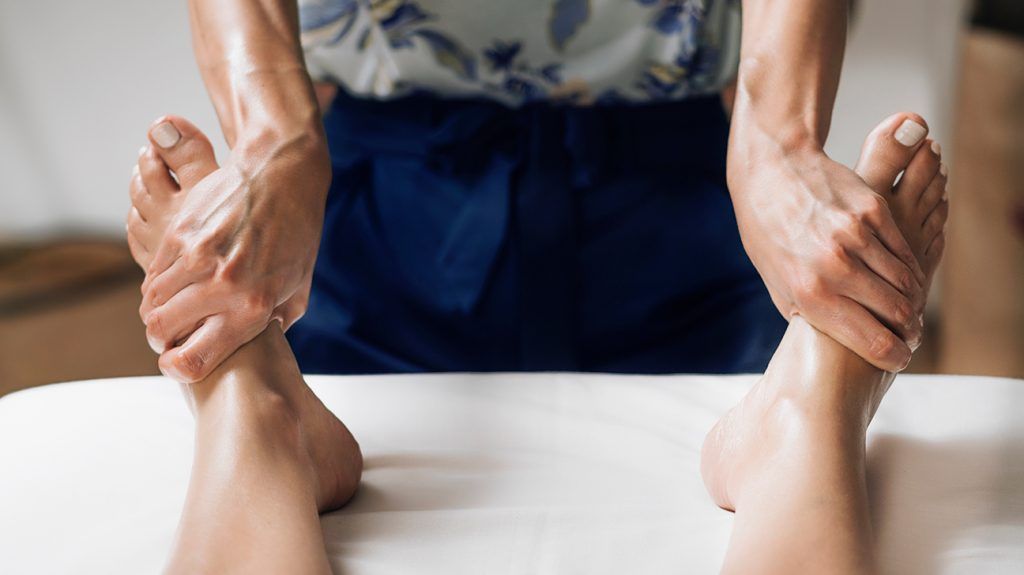The comedic mantra “treat yo’self” may come to mind, but self-care isn’t heedless splurging. Research shows that self-care enhances your health, decisions, and day-to-day actions.

If self-care isn’t overspending sprees or pamper days, what is it?
Over the past few decades, there have been numerous attempts to define self-care.
The
“The ability of individuals, families and communities to promote health, prevent disease, maintain health, and to cope with illness and disability with or without the support of a healthcare provider.”
Folks of every stage and age are trying their hand at combining Western medication management with Eastern medicine prevention and alternative medicine, along with a healthy dose of financial investment in themselves and protective measures for mental soundness.
The
But self-care can also include factors from a communal standpoint, like community involvement, neighborhood participation, and cultural empowerment.
Emotional
The centerpiece of self-care is the promotion of health and well-being. Emotional self-care is centered around ensuring your emotional needs are met and protected.
In a small
- yoga
- massage
- taking a hot soak
- socializing
- maintaining positive relationships
But emotional care also means taking time for valued activities meaningful to you. The importance of slotting time to pursue, develop, or just dabble with a hobby or pastime is often undervalued or brushed off as a waste of time.
What makes it appealing to your personal tastes is also what makes it grounding for you when life difficulties loom large. Your hobby might be active or passive leisure including but not limited to:
- crafts
- crochet
- puzzles
- tinkering with mechanical pursuits
- reading about travel destinations
- upscaling furniture
- making jewelry
- playing or tuning a guitar
- indoor bouldering
Physical
Physical self-care is a broad term that can refer to a range of practices. It can include basic daily life activities that, during a mental or physical health episode, we tend not to follow through on. These can include:
- washing up and putting on fresh clothes
- skin care
- dental hygiene
The
Other aspects of physical self-care include:
- eating a nutritious and balanced diet
- getting regular exercise
- following everyday health practices to reduce your risk of disease, such as:
- getting vaccinated
- using barrier methods during sex
- wearing sunscreen
- avoiding smoking and heavy alcohol consumption
Spiritual
Spiritual self-care involves a number of practices focused on connecting with your inner being, which may assist people in their personal development, sense of peace, and foundation to fall back on.
Spiritual self-care involves ensuring your spiritual needs are met. Possible strategies for spiritual self-care include:
- meditation
- visiting places of worship
- reading from spiritual or religious texts
- prayer
- community involvement
- seeking peace and finding joy
Self-care should not be viewed as something you only do if you have time. Neither is self-care something that should only be a reward that can be gained once other tasks are completed.
Self-care, if practiced appropriately, needs to be an integral part of your daily life. Fortifying your emotional, physical, and spiritual health through self-care is the foundation for your overall health and well-being.
A
Self-care is not selfish; it is not a waste of time.
Getting started with self-care can be overwhelming. It can be difficult to know what methods of self-care will best benefit you, or what areas of your life you should focus on.
You could start by writing.
Many studies, like this one from 2017, analyze and interpret the value of taking pen to pad for mental health. Writing your thoughts, study authors conclude, can:
- serve as a therapeutic tool for perspective into yourself and others
- be a healthful hobby
- be a conduit for personal and health improvement
Cheryl Richardson is the author of “The Art of Extreme Self-Care: Transform Your Life One Month at a Time.” She advises that the best way to begin your self-care practice is to identify where you feel most deprived in your life.
Richardson suggests asking yourself the following questions:
- Where do I feel deprived?
- What do I need more of right now?
- What do I need less of?
- What do I want right now?
- What am I yearning for?
- Who or what is causing me to feel resentful, and why?
- What am I starving for?
Richardson suggests you be specific in your responses. Rather than write that you feel like you don’t have time to yourself, you might instead write that you feel deprived of uninterrupted alone time away from your family. Having this time would enable you to do something just for you, like shop for yourself, read a book, or catch up with a friend.
Being specific will help you identify what you’re lacking and what you need.
Richardson also suggests creating a “No List.” Knowing what you don’t want to do, she affirms, is just as important as knowing what you do want to do. Examples that might go on the No List include:
- not gossiping
- not rushing
- not holding on to things you don’t love or need
The No List makes it clear what you refuse to deal with in your life. Having such a list can help you feel protected and safe, and leave you free to engage in self-care.
When to fit in self-care
There’s no secret formula for the best time of day for self-care. The most consistent recommendations are to try and make time for self-care around the same period each day to build the habit.
A 2020 study on prescription treatment habits and adherence may lend some insight to incorporating your self-care habit. The study found that more people were accustomed to a set of activities to start their days (whatever time that was for each person).
Adding another habit to that morning regimen was easier than implementing a habit later on in the day.
For self-care like mindfulness, reflection, and journaling, this end-of-day time (whatever that is for you) may be the ideal stage to pick from your customized self-care arsenal to give yourself attention, without it being another structured “to do.”
If you’re a caregiver to a child, perhaps midday, when the kids are at school, is an ideal time to pen in moments to tend to yourself.
As a nation, it seems the COVID-19 pandemic was a wake-up call to start prioritizing our individual well-being.
A June 2020 Harris Poll, conducted on behalf of Samueli Integrative Health Programs, found that 80% of U.S. adults said they will be more intentional about practicing self-care on a regular basis once the pandemic is over.
The same poll found that:
- 46% said they had been having difficulty maintaining their physical, mental, and spiritual health due to the pandemic
- 30% said they have a lack of energy
- 29% reported having trouble sleeping
- 29% said they exercised less
- 64% said they’re more conscious of their mental health than ever before
- 44% said they wished they had more support or guidance on how to practice self-care
Compared with before the pandemic, the survey found that some people have been practicing more activities for self-care:
- 35% are engaging in more creative pursuits
- 31% are praying more
- 31% are having more meaningful conversations with family or friends
- 25% said they’re spending more time outdoors or eating more healthy foods
Self-care can take many forms, such as physical, spiritual, and emotional self-care. It’s an important factor in maintaining health and well-being.
Self-care might range from a hot soak and yoga to everyday activities like preparing meals you want to eat or dressing in your choice of style.
Self-care is not an indulgence. The WHO recognizes it as a crucial aspect of health maintenance.
Tailoring self-care for your budget, season in life, and personal needs for whole body wellness, inside and out, can be energizing and exciting in itself.
